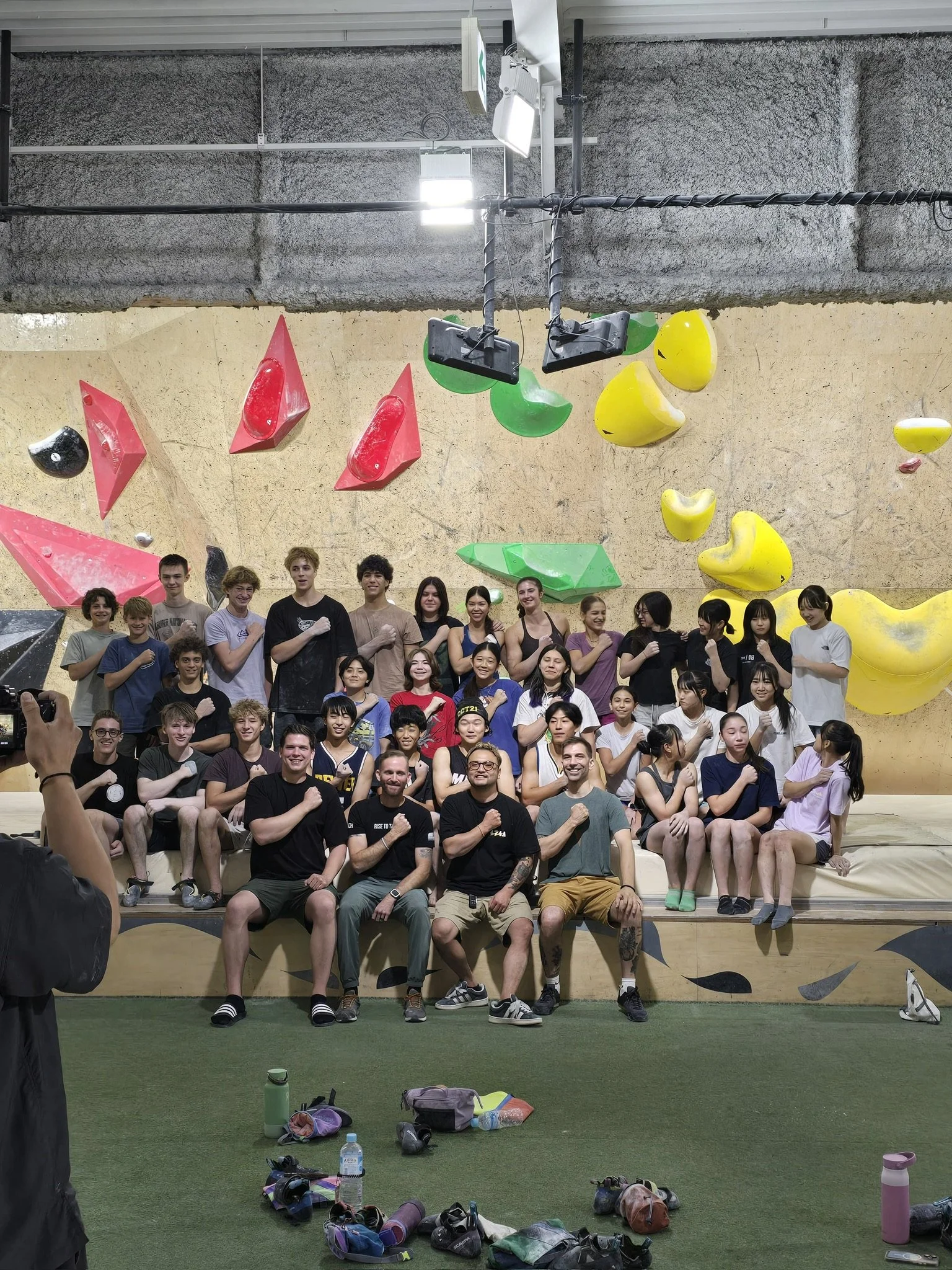Details for the 2026 Training Camp will be announced soon! Sign up below to receive updates and be notified when information and applications go live.
Why Tokyo?
Japan continues to produce some of the world’s top climbing athletes — frequently winning IFSC World Cups and dominating the Youth World Championships. This success is particularly impressive given that Japan’s climbing scene is smaller compared to the rapidly growing participation seen in USAC.
The youth climbing system in Japan also operates quite differently from the U.S. in a few key ways:
One Shot to Qualify: There are no QE, Regionals, Divisionals, or multiple rounds of Nationals. Athletes have just one event to earn a spot on the Youth Worlds team.
No Traditional Gym Teams: Instead of large gym-sponsored teams, climbers often train in smaller, specialized groups, seeking out experts in bouldering, rope, technique, and more.
Unique Training and Climbing Approach: A heavy focus is placed on projecting climbs, refining technique, and cultivating a different mindset in training.
Tokyo is incredibly safe, clean, and welcoming to foreigners. In my experience, most restaurant staff, hotel teams, and Airbnb hosts speak enough English to make communication easy — and when they don’t, Google Translate works surprisingly well.
Navigating Tokyo’s train system feels like a cleaner, more efficient version of New York City’s subways (seriously — it’s very impressive).
Even better: aside from flights (I’ll include some helpful tips once athletes are selected), almost everything else — food, accommodations, transportation — is very affordable!
Please see the (FAQ) section for additional info
Contact Us
Please reach out if your question wasn’t answered in our FAQ section or are still on the fence about applying!
